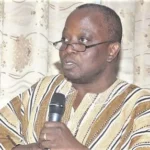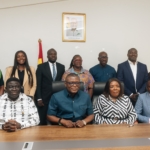
Ghana’s renowned anti-corruption activist, Mr Daniel Yao Domelevo, has called for the introduction of stronger legal frameworks, including a ‘reverse burden’ law, to enhance Ghana’s fight against corruption.
Speaking on JoyNews’ Newsfile on Saturday, Mr Domelevo argued that such laws would place greater responsibility on individuals accused of corruption to prove the legitimacy of their wealth.
In the fight against corruption, “Reverse Burden” refers to a legal concept where the accused person must prove their innocence, rather than the prosecution having to prove their guilt.
This is a reversal of the standard principle of presumption of innocence and is used in corruption cases because it is often very difficult to prove the source of corrupt funds, making it a useful tool for combating financial crimes.
Watch his interview with Samson Lardy on the show.
He further suggested that anti-corruption cases should be handled within strict time limits to prevent undue delays in prosecution.
His suggestions followed his recent comments that there is a delay in prosecuting those implicated in the ORAL investigations, describing nine months as too long for action to be taken.
Which countries use the reverse burden of proof?
Countries that use the “reverse burden of proof” (or shifting burden of proof) in their fight against corruption include Indonesia, Malaysia, Singapore, and Hong Kong.
This legal approach shifts the responsibility to the accused to prove their innocence, rather than the prosecution having to prove guilt.
While not universally applied in all corruption cases in these countries, it is often used in specific contexts, particularly for money laundering connected to corruption.



